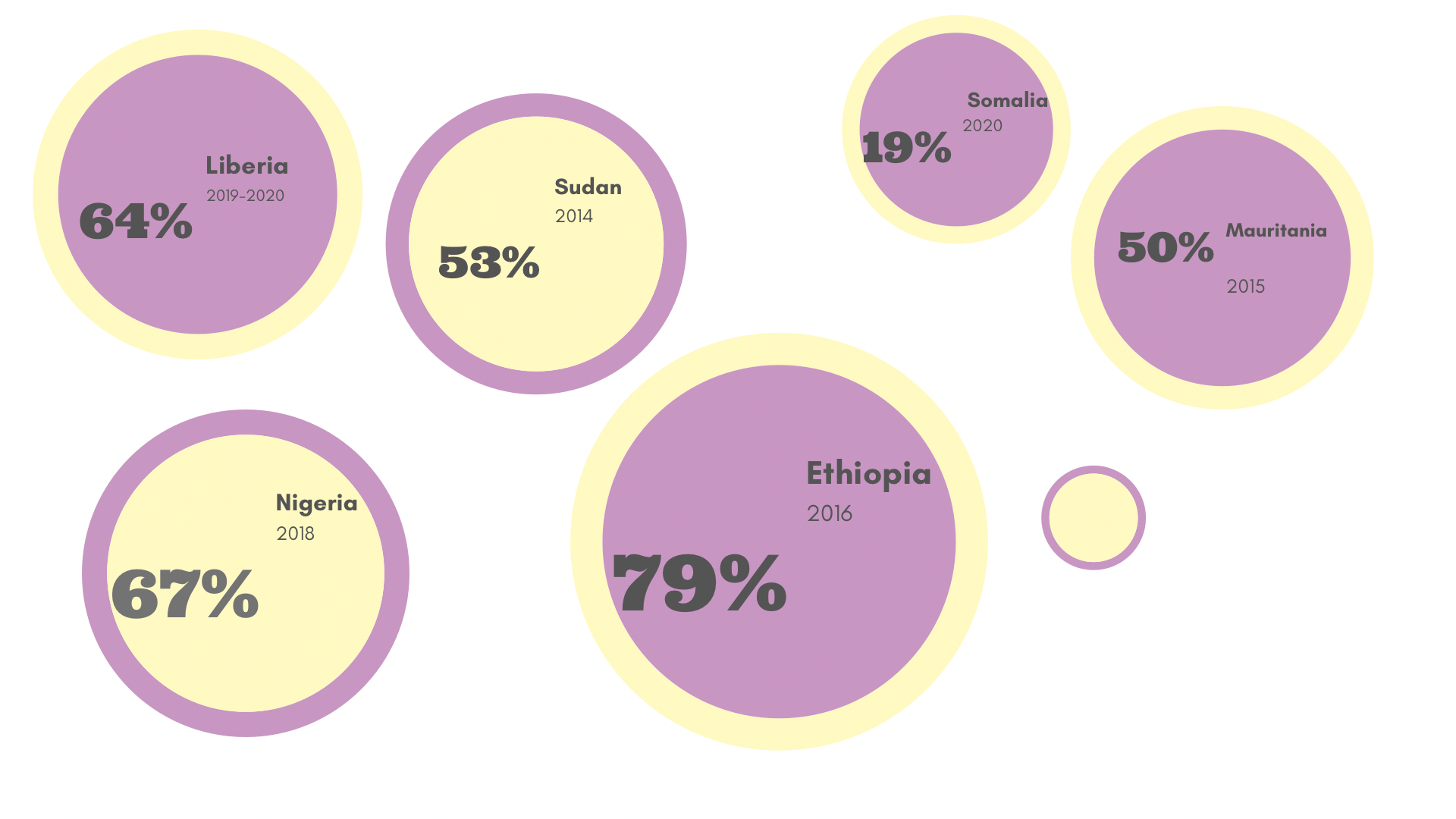
The East African Legislative Assembly (including Kenya, South Sudan, Tanzania and Uganda) has jointly developed and signed a treaty banning FGM. However, the Economic Community of West African States (ECOWAS) does not have a law on the subject. (28 Too Many, 2018). This means that the reasons for the persistence of FGM around the time of the epidemic (mainly in Africa) are traced at the legal level of countries and national organisations.
According to the Percentage of girls and women and percentage of boys and men aged 15 to 49 years who have heard about FGM and think the practice should end, collected by Unicef from various data platforms in 2021, we can see that people still do not have a resolute attitude to resist FGM. Although the collected data are from different countries and different years, which is difficult to visualize, it is easy to see that the opposition rate to FGM is not 100%, regardless of men or women, before or after the epidemic. Therefore, it is also meaningful to study the reasons for the persistence of FGM before and after the epidemic from the perspective of people's attitudes.

* Proportion of girls and women aged 15-49 opposing FGM in some countries
* Proportion of boys and men aged 15-49 opposing FGM in some countries


